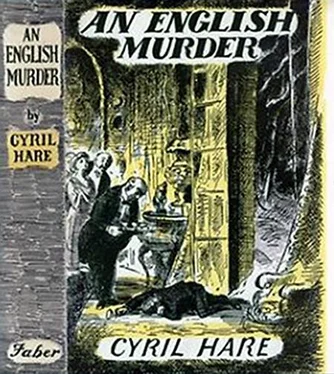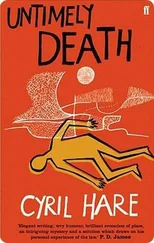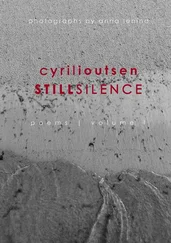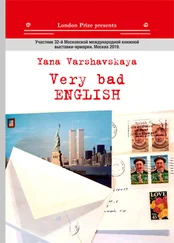"If you wish it, my lady," he said, with a stiff little continental bow. He took up a position in the exact centre of the carpet, his legs apart, his hands clasped behind his back, raised his chin and began in the clear, high tone of a lecturer:
"I have been invited to begin my exposition with the year 1789. In fact, I introduced the events of that year merely for the purpose of illustration or analogy. When, this morning, I invited Sergeant Rogers to consult the biography of the younger Pitt, I did so simply to bring to his attention a state of affairs which, it seemed to me, offered a ready-made explanation of the crime that he was investigating. I did not wish to push myself forward. I thought that by accepting my hint he would be able to solve the problem for himself. I thought that he would see—as I saw—that this case was a remarkable example of history repeating itself. I have to admit that subsequent events led me to doubt the validity of my own hypothesis. In the stress of the moment, I hastily assumed that my diagnosis was incorrect. Further enquiry, however, satisfied me that the error lay in this latter assumption and not in the original theory. In short, I had been perfectly right from the beginning. History had repeated itself—and to an even more remarkable degree than I had at first supposed."
Dr. Bottwink paused. He drew his handkerchief from his pocket, carefully polished his spectacles and readjusted them on his nose before proceeding: "Sir Julius has characterized the events which we have recently witnessed as un-English. Respectfully, I beg to differ. This could only have happened in England. It is, indeed, an essentially English crime. I am a little astonished that he, of all persons, should have considered it otherwise. You may object," the historian went on, though his audience, stunned by the flow of words, displayed not the slightest disposition to object, "that crime—or at all events murder—is essentially a supra-national phenomenon; that consequently there can be no distinction between an English murder and an un-English one. But this is a fallacy. In investigating a crime we have to consider it in two aspects —the act itself, which is basically identical in all lands and under all systems of jurisprudence, and the social and political framework in which it occurs. To reduce the matter to the simplest possible terms, we must examine the motive for the crime. A motive that is valid for one form of society may be totally non-existent in another. And once the motive is determined, the identification of the criminal becomes a mere matter of simple deduction."
Dr. Bottwink removed his spectacles again. This time he folded them up and, retaining them in his hand, wagged them fiercely at his audience to drive home his points.
"Why, then, do I maintain that this was an English crime?" he demanded. "Because the motive was English. Because it was made possible by a political factor that is peculiar to England." He paused in momentary contusion. "Perhaps I should have said 'Britain'," he observed. "Forgive me. I desire to offend nobody's susceptibilities. I amused to saying 'England', and with your permission I shall continue to do so. To resume: this crime—and, for reasons which will become obvious, I use the singular and not the plural—this crime, then, could not have occurred but for the fact that England, alone of all civilized countries, retains in its constitution an hereditary legislative chamber. And its motive was quite simply to procure a seat in that chamber for one person by removing the two individuals who stood between him and the right to occupy it."
"I have never heard such a pack of nonsense in my life!" Sir Julius, white with rage, advanced upon Dr. Bottwink.
Shaking his fist under the historian's nose, he spluttered, "Do you dare to suggest, sir, that I——? Do you dare to suggest——?" The sentence trailed away into inarticulate sounds of anger.
Dr. Bottwink remained literally and metaphorically unmoved. He did not budge an inch from his position, and he continued to speak without taking the smallest notice of the interruption.
"So far," he proceeded in the same didactic manner, "so far we have been considering what would appear at first sight to be a simple case of dynastic assassination. But the matter is a little more complicated than that. If it were not so, I should have hardly been justified in characterizing it as I have ventured to do. The destruction of a reigning family in the interests of a cadet branch is a practice common to all nations and all ages. In order to comprehend this incident in its true light, it will be useful to revert once more to a consideration of the biography of William Pitt and the events of the year 1789."
The lecture was at this point again interrupted, this time by Camilla. She had begun to take a cordial dislike to William Pitt, and at the renewed mention of his name she groaned aloud. But Dr. Bottwink went remorselessly on.
"The year in question was one of many vicissitudes for this country and for Europe, but, interesting as they are in themselves, they are not relevant to this enquiry, for they were caused in the main by economic and constitutional factors here and abroad which are not now operative. As I ventured to point out to Sergeant Rogers this morning, its importance for our purposes lies precisely in an event which did not happen . Because it did not happen, it has been forgotten, except by historians, who unfortunately are not permitted to exercise much influence in current English politics. The event to which I allude—and which for some days appeared quite inevitable—was none other than the death, at that particular juncture, of the second Earl of Chatham. He had no son. His heir was none other than his brother, William Pitt, then Prime Minister and Chancellor of the Exchequer. One can but speculate on what would have ensued; but this much is certain: the great man's administration depended uniquely upon his personal ascendancy in what is still quaintly called the Lower House of Parliament. Had he been, in your own expressive phrase, kicked upstairs, the result would have been a major political crisis. Perhaps it is not too much to say that not only the career of a great statesman but the whole history of Europe turned upon the life or death of a totally undistinguished nobleman. Sir Julius," he turned abruptly to the Chancellor of the Exchequer, still glowering at him within arm's length, "does the parallel appeal to you?"
Sir Julius stared at the speaker in silence. His angry expression had been succeeded by one of unwilling admiration. Then, slowly and emphatically, he nodded his head.
"Your position is more vulnerable even than that of your illustrious predecessor, since constitutionally a Prime Minister may sit in the House of Lords. A Chancellor of the Exchequer, on the other hand, may not. Should it ever be your lot to succeed to the family peerage, you will be able to serve your country in any one of a variety of distinguished offices, but you will be for ever incapable of holding your present one. This fact must have been very much on your mind during the last twenty-four hours, must it not?"
Sir Julius nodded again.
"Why then," the historian went on in an accent of gentle reproach, "why did it never occur to you to reflect on who would be the obvious successor to that position when and if what Lord Rosebery has called 'the grim humour of our constitution' compelled you to relinquish it? I am no student of contemporary politics, but I am sure that since I have been in this house I have heard the name mentioned a dozen times at least. Or was Mrs. Carstairs wrong in her estimate of her husband's prospects?"
"She was perfectly right," said Julius huskily. "He is the obvious man."
"Precisely." Dr. Bottwink threw out his hands in an expressive gesture. "There is the case in a nutshell. Need I insult your intelligence by saying any more?"
Читать дальше












